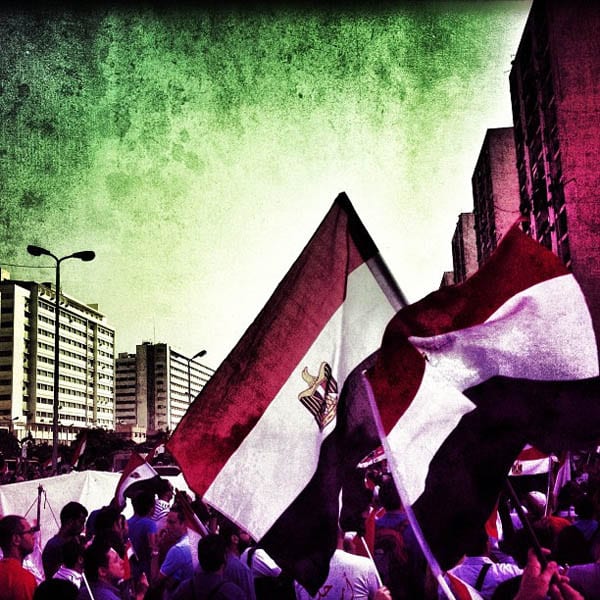
In an attempt to integrate information and communication technologies (ICTs) into Egypt’s socioeconomic development, the former president, Hosni Mubarak, created the Ministry of Communications and Information Technology (MCIT) in 1999 and adopted policies designed to make computer and Internet access more affordable and widely available. However, there was an obvious contradiction between Mubarak’s ambition to develop the ICT sector and his desire to maintain control over information flows. As a result, Internet penetration jumped from 1.01% (0.65 million users) in 2000 to 45.93% (38.75 million users) in 2013. By March 2014, mobile Internet users accounted for 41.72% of all Internet users, compared with only 28% in 2009. In 2012, 57% of smart-phone users said that they used their phones to take part in political life, sharing and expressing their political views and opinions through the different smart-phone applications.
ICT development drew young Egyptians into the outside world and opened their eyes to a wider global picture, very different from the image offered by the state-controlled media. Access to Internet allowed them to contrast their poor circumstances and living conditions with those fortunate others abroad and among their own countrymen. Particularly, the social media helped connect previously isolated groups who were now able to air their shared grievances beyond the small community of activist leaders and globalise their domestic movement for democratic change.
Egypt has the largest share of Facebook users in the Arab World, with around 19.4 million users in May 2014, 73% of them aged between 15 and 29. Facebook is the most visited website in Egypt since the revolution of 25 January 2011. YouTube has become a prime tool for following up on what is happening in the country. In contrast, Al-Ahram and Al-Akhbar, the two state-owned newspapers, featured prominently among the top five news websites ranked in the 2009 survey published in the Arab Media Outlook Report 2009-13. The switch in the primary sources used to obtain news about Egypt significantly reduces the government’s influence through its controlled news services in the regime’s traditional media, leading a growing number of people to resort to the social media and online news sources.
Access to Internet-based tools substantially lowered the costs of collective action for protesters in Egypt. However, the protesters at Tahrir square have so far failed to create a viable political party or movement. Since the 2011 revolution, many politicians have created Facebook pages or accounts on Twitter to communicate with Egyptian citizens. Even the Supreme Council of the Armed Forces (SCAF) released its official declarations through its Facebook page. The social media also played a role in the presidential election campaign in 2014. Both presidential candidates delivered their opening speeches via YouTube and released hashtags on Twitter calling for ideas and suggestions: #HaNekamelHelmena (‘we will continue with our dream’) by Sabbahi and #TahyaMasr (‘long live Egypt’) by al-Sisi. At the same time, there were several campaigns on the social networks calling for boycotting the elections and encouraging mass demonstrations against the election.
The messages posted on the social networks since Morsi was removed from power in July 2013 show a country divided between supporters and detractors of the former president, which is a reflection of the broader polarisation of society. It has become increasingly difficult to air or publish opinions that do not follow the official editorial line, so some authors end up publishing their articles on online forums, Facebook pages and blogs. Although many opinions on social networks are also polarised now, the networks can still offer a voice to those who choose the middle ground or prefer being objective and denounce human rights violations regardless of the perpetrator or their own political views, a stance that has become increasingly difficult to maintain or even express through the mainstream media.
Over the coming years the relationship between the Internet and politics will be increasingly important for the transition towards democracy in Egypt. A consequence at the individual level might be a change in attitude derived from accessing different sources of information, revealing possibilities that the state media keep concealed and leading to a lower degree of credibility in the state. At a society level, the Internet generation may be able to forge a new political and social awareness among Egypt’s youth.
